第14章
It must certainly be allowed, that nature has kept us at a great distance from all her secrets, and has afforded us only the knowledge of a few superficial qualities of objects; while she conceals from us those powers and principles on which the influence of those objects entirely depends. Our senses inform us of the colour, weight, and consistence of bread; but neither sense nor reason can ever inform us of those qualities which fit it for the nourishment and support of a human body. Sight or feeling conveys an idea of the actual motion of bodies; but as to that wonderful force or power, which would carry on a moving body for ever in a continued change of place, and which bodies never lose but by communicating it to others; of this we cannot form the most distant conception. But notwithstanding this ignorance of natural powers[11] and principles, we always presume, when we see like sensible qualities, that they have like secret powers, and expect that effects, similar to those which we have experienced, will follow from them. If a body of like colour and consistence with that bread, which we have formerly eat, be presented to us, we make no scruple of repeating the experiment, and foresee, with certainty, like nourishment and support. Now this is a process of the mind or thought, of which I would willingly know the foundation. It is allowed on all hands that there is no known connexion between the sensible qualities and the secret powers; and consequently, that the mind is not led to form such a conclusion concerning their constant and regular conjunction, by any thing which it knows of their nature. As to past , it can be allowed to give and information of those precise objects only, and that precise period of time, which fell under its cognizance: But why this experience should be extended to future times, and to other objects, which for aught we know, may be only in appearance similar; this is the main question on which I would insist. The bread, which I formerly eat, nourished me; that is, a body of such sensible qualities was, at that time, endued with such secret powers: But does it follow, that other bread must also nourish me at another time, and that like sensible qualities must always be attended with like secret powers? The consequence seems nowise necessary. At least, it must be acknowledged that there is here a consequence drawn by the mind; that there is a certain step taken; a process of thought, and an inference, which wants to be explained. These two propositions are far from being the same, , and .
I shall allow, if you please, that the one proposition may justly be inferred from the other: I know, in fact, that it always is inferred. But if you insist that the inference is made by a chain of reasoning, I desire you to produce that reasoning. The connexion between these propositions is not intuitive. There is required a medium, which may enable the mind to draw such an inference, if indeed it be drawn by reasoning and argument. What that medium is, I must confess, passes my comprehension; and it is incumbent on those to produce it, who assert that it really exists, and is the origin of all our conclusions concerning matter of fact.
This negative argument must certainly, in process of time, become altogether convincing, if many penetrating and able philosophers shall turn their enquiries this way and no one be ever able to discover any connecting proposition or intermediate step, which supports the understanding in this conclusion. But as the question is yet new, every reader may not trust so far to his own penetration, as to conclude, because an argument escapes his enquiry, that therefore it does not really exist. For this reason it may be requisite to venture upon a more difficult task; and enumerating all the branches of human knowledge, endeavour to show that none of them can afford such an argument.
All reasonings may be divided into two kinds, namely, demonstrative reasoning, or that concerning relations of ideas, and moral reasoning, or that concerning matter of fact and existence. That there are no demonstrative arguments in the case seems evident; since it implies no contradiction that the course of nature may change, and that an object, seemingly like those which we have experienced, may be attended with different or contrary effects. May Inot clearly and distinctly conceive that a body, falling from the clouds, and which, in all other respects, resembles snow, has yet the taste of salt or feeling of fire? Is there any more intelligible proposition than to affirm, that all the trees will flourish in D/ECEMBER and J/ANUARY, and decay in M/AY and J/UNE? Now whatever is intelligible, and can be distinctly conceived, implies no contradiction, and can never be proved false by any demonstrative argument or abstract reasoning
.
If we be, therefore, engaged by arguments to put trust in past experience, and make it the standard of our future judgment, these arguments must be probable only, or such as regard matter of fact and real existence according to the division above mentioned. But that there is no argument of this kind, must appear, if our explication of that species of reasoning be admitted as solid and satisfactory. We have said that all arguments concerning existence are founded on the relation of cause and effect; that our knowledge of that relation is derived entirely from experience; and that all our experimental conclusions proceed upon the supposition that the future will be conformable to the past. To endeavour, therefore, the proof of this last supposition by probable arguments, or arguments regarding existence, must be evidently going in a circle, and taking that for granted, which is the very point in question.